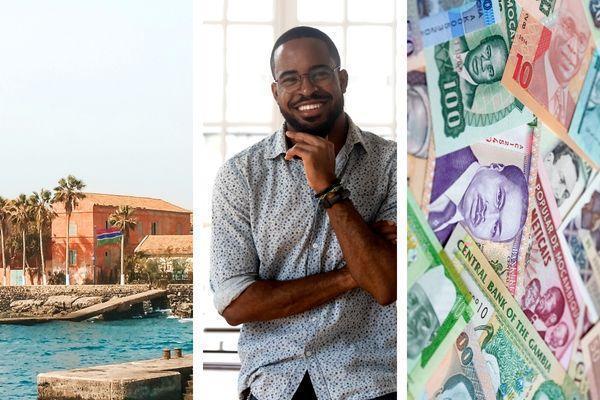
Gambia’s Independence Day marks the immemorial event when this West African nation regained control over its administrative affairs. Prior to this, it was controlled and ruled by the Portuguese and then the British who eventually made it a Commonwealth nation. This was relatively easier because the Gambia was a bunch of scattered small kingdoms.
Despite being small, each kingdom on this small strip of land had its own cultural significance — probably the reason why most Gambians speak an average of four languages. This cultural diversity is also reflected in Gambia’s Independence Day celebrations held at McCarthy Square, Banjul. The speeches and cultural performances clearly showcase it.
Let us now dive deeper into the smiling coast’s reason to smile — its independence, the history and struggle behind it, and also how it celebrates the victory in the present times.
Contents
- When did the Gambia gain independence?
- Gambia’s Commercial Significance and the Fight for Independence
- How Gambians celebrate Independence Day Today
- The Name Gambia
- How can I transfer money to Gambia?
When did the Gambia gain independence?
Gambia, like other African nations, was blessed with natural resources and favorable geographical placement — two traits that European colonists could never resist. The actual troubles for the Gambia began with its accidental discovery by the Portuguese Prince Henry but magnified as the English colonists took over.
During the mid-15th Century, Prince Henry set up trade spots in the Gambia but a century later, the Portuguese lost interest in this region. Around the same time, the English found Gambia to be a favorable base of operations for their Timbuktu adventures and took over. Later on, their interest in Gambia declined and it was declared independent on February 18, 1965, and subsequently a republic in 1970.
Gambia’s Commercial Significance and the Fight for Independence
Gambia was the smallest nation in mainland Africa but still had its own geographical significance because it was surrounded by the river Gambia. This river flew into the Atlantic and accelerated trade and commerce. This ease of navigation facilitated the slave trade and also expeditions to Timbuktu, the African El Dorado. It was the treasure trove that all the European colonists were after but could not capture due to two reasons — the deadly diseases and the harsh Saharan desert.
It was not uncommon for explorers to survive on camel urine or on blood while on their expeditions which took several days of travel in the harsh climate. So, a base nearby was critical and that’s one of the few major reasons the British colonized the Gambia. Besides Timbuktu, access and control over the Gambia also facilitated the slave trade but that ended in 1807 when the British Empire abolished the slave trade.
Gradually, the commercial interest in Gambia declined. Also, Timbuktu was captured by the French in 1894 and the British had no commercial interest left in Gambia. On the other hand, internal unrest and protests for independence in the Gambia grew stronger in the mid-1940s and two decades later, Gambia got its first-ever elected Head of the Legislature, President Dawda Jawara. This brought an end to colonialism and marked the beginning of a republic that now makes all its decisions through an elected Head of State.
How Gambians celebrate Independence Day Today
Gambians are known for their cheerful nature and while most locals in Gambia spend the day participating in marches and cultural events around McCarthy Square in Banjul, those abroad meet with other Gambians. They celebrate by hoisting the flag, and listening to traditional music along with some banter and Gambian dishes. However, there are youngsters who like to celebrate the occasion with music and drinks, like this group in Germany does.
The Name Gambia
The word ‘Gambia’ is said to be a corrupted pronunciation of the word ‘Kambra’ or ‘Kambaa’, which in the Mandinka language refers to a specific type of gourd vegetable. This gourd was traditionally beaten when a Serer elder died.
The interesting part is that both the Mandinka language and Serer people belong to Senegal. While the Serer people constitute the largest ethnic group in Senegal, the Mandinka language is popular in Senegal’s Casamance region.
Why is the Gambia called ‘The Gambia’?
This West-African country was officially referred to as ‘The Gambia’ in 1965 when it was declared independent. However, later on in 1970 the leaders decided to change its official name to ‘Republic of The Gambia’. The region has also been referred to by other names like ‘SeneGambia’ and ‘Islamic Republic of The Gambia’. The Senegambia Confederation was for the cooperation between the two neighbors, but after Gambia’s refusal to be part of the union, it was dissolved on 30th September 1989.
In December 2015, Yahya Jammeh’s government renamed the nation ‘Islamic Republic of The Gambia’ but this was reversed two years later by his successor. Although there have been a string of names, the best one is ‘The Smiling Coast of Africa’ which truly reflects the culture of this tiny nation filled with some of the friendliest people.
The Gambian Independence Day celebrations make it even more exciting to visit the smiling coast during February. For those planning long-term stays, the weak Gambian currency makes that a budget-friendly deal. To make that picture-perfect, Small World offers seamless exchange between the Gambian Dalasi and your local currency. For more details, contact us now.
How can I transfer money to Gambia?
If you want to join the celebrations of your loved ones but you cannot travel there, you can always send money to Gambia to your loved ones. Small World can help you with your remittance offering you the best exchange fee possible. And remember that when sending money online your first transaction with us is fee free.